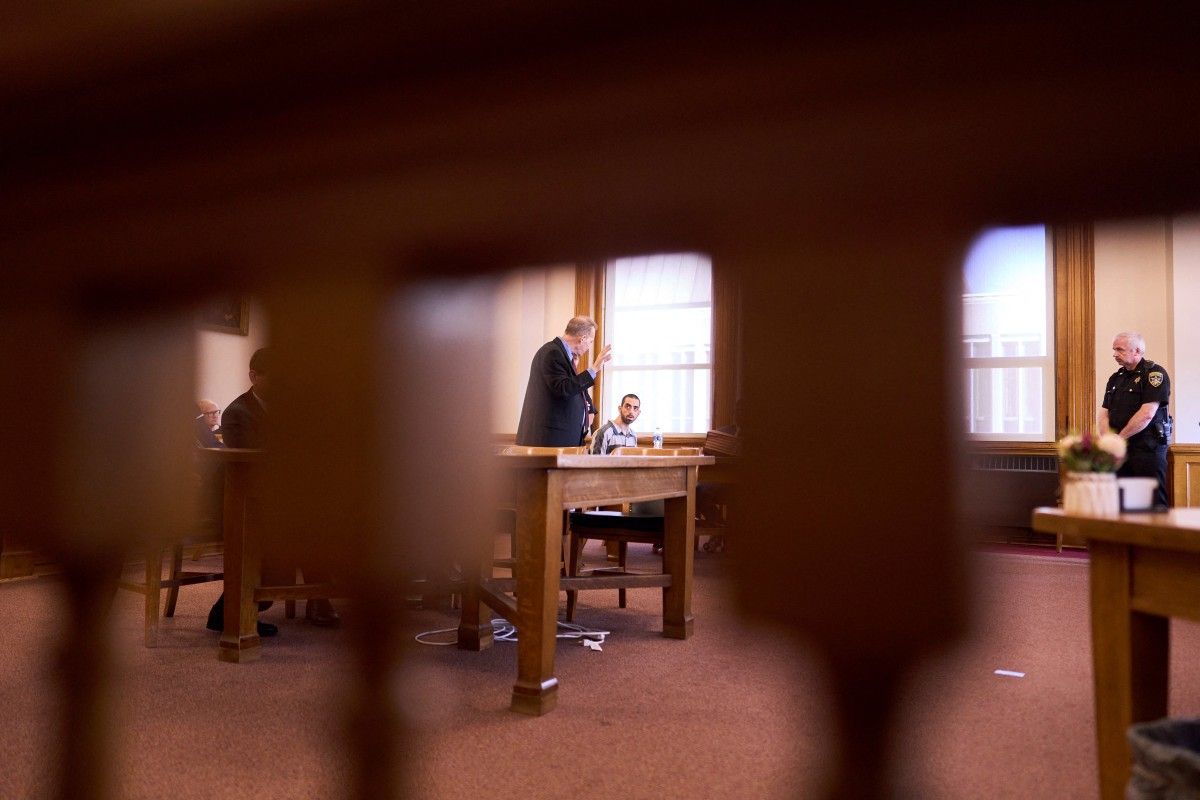
British-American author Salman Rushdie was stabbed multiple times during a public event in 2022, leaving him with life-changing injuries. His attacker, Hadi Matar, has now been sentenced to 25 years in prison by a New York court.
Hadi Matar, the American-Lebanese man who stabbed Salman Rushdie in 2022, was sentenced Friday to 25 years in prison in the United States. Rushdie, a symbol of freedom of expression, sustained serious injuries in the knife attack.
Matar, 27, who grew up in the U.S., was found guilty in February of attempted murder and assault by a jury following a two-week trial at the Mayville court, in northern New York State.
He received the maximum penalty: 25 years for attempted murder and an additional seven years for injuring Henry Reese, co-founder of Pittsburgh Ville Refuge, a nonprofit helping exiled writers. The sentences will run concurrently.
Salman Rushdie did not attend the sentencing hearing.
On August 12, 2022, Matar repeatedly stabbed the author of The Satanic Verses, a novel that led Iran to issue a fatwa calling for Rushdie's death in 1989, deeming the work blasphemous.
The 77-year-old British-American author of Indian origin lost sight in his right eye as a result of the attack. His Adam’s apple was slashed, his liver and small intestine were punctured, and nerve damage to his arm left him with permanent paralysis in one hand.
The assault occurred in front of nearly a thousand people at a conference dedicated to protecting freedom of expression, in a peaceful area near the Canadian border. Rushdie was saved by audience members who intervened.
Matar is also facing federal terrorism charges in the United States for allegedly committing an “act of terrorism on behalf of Hezbollah,” the Iran-backed Lebanese Shiite movement. Tehran has denied any involvement in the attack.
At the Mayville courtroom, where he appeared in February with his right eye hidden behind tinted glasses, Salman Rushdie testified that he thought he was going to die during the attack.
“It was a stab wound in my eye, intensely painful. After that, I was screaming because of the pain,” Rushdie told the court, adding that he was left lying in a “lake of blood.”
He has since recounted the ordeal in a memoir titled Knife.
Hadi Matar was arrested at the scene.
During the trial, Matar shouted pro-Palestinian slogans multiple times. He stabbed Rushdie roughly ten times with a knife featuring a nearly 20-centimeter (six-inch) blade.
A few days after the attack, he told the New York Post from jail that he was “surprised” Rushdie had survived.
He did not say whether he had been inspired by the 1989 fatwa issued by Ayatollah Khomeini, then the Supreme Leader of Iran. He admitted to having read only two pages of The Satanic Verses but claimed Rushdie had “attacked Islam.”
Following the fatwa, Salman Rushdie lived in hiding in London for a decade, but for the past 20 years had led a relatively normal life in New York—until the attack.
By Geoff ROBINS / AFP



Comments